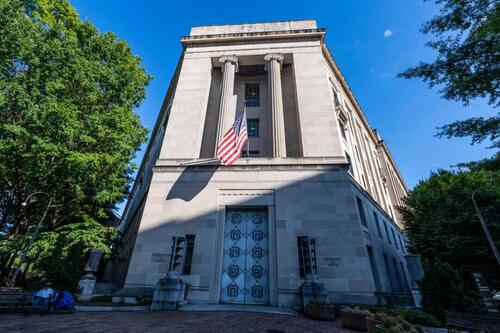Authored by Catherine Yang via The Epoch Times (emphasis ours),
Klaus Pflugbeil, a Canadian man currently residing in China, was sentenced on Dec. 16 to 24 months in prison for selling trade secrets stolen from an American company.

Pflugbeil was charged in March and pleaded guilty in a New York federal court in June.
He and co-conspirator Yilong Shao, who remains at large, had worked for a Canadian manufacturer that sold precision equipment to battery companies. That company was acquired in 2019 by a leading U.S.-based manufacturer of battery-powered electric vehicles and battery energy systems, which Pflugbeil and Shao stole from.
The American company has been identified as Tesla. Pflugbeil had worked at Canadian manufacturer Hibar System Ltd. in Canada and China from 1995 to 2009, and Hibar was later purchased by Tesla.
According to communications between Pflugbeil and Shao referenced in court documents, Pflugbeil detailed the original documents and drawings of proprietary technology he had stolen from Tesla. In or around July 2020, Pflugbeil joined Shao’s company, which made and sold the same equipment that their original employer made and sold.
“The defendant built a business in China to sell sensitive technology that belongs to a U.S. company,“ said U.S. Attorney Breon Peace for the Eastern District of New York. ”His actions were bold—he even advertised that he was selling the victim’s products—because he thought, incorrectly, that he was outside the reach of U.S. prosecutors.”
Pflugbeil had advertised these products on YouTube, through LinkedIn, and via Google, where the ads were shown tens of thousands of times per week. In direct advertising messages, Pflugbeil falsely stated his products did not infringe on patents, copyrights, or other intellectual property. According to the Justice Department (DOJ), Pflugbeil made more than $1.3 million on the stolen trade secrets.
DOJ officials said the case implicated national security, referencing the Chinese communist regime’s practice of pricing out competitors in strategically important industries.
The department stated that this had the potential to aid “Chinese automakers to swamp the U.S. and global market.” That market dominance also “presents a potential national security risk.”
In September, the Biden administration had proposed a ban on Chinese vehicle software and hardware based on national security concerns, noting that all new cars are “connected” vehicles, which possess the capability to capture and transmit great amounts of sensitive data.
“In stealing trade secrets from an American electric vehicle manufacturer to use in his own China-based company, Pflugbeil’s actions stood to benefit the PRC in a critical industry with national security implications,” stated Assistant Attorney General for National Security Matthew G. Olsen.
“The Justice Department will mobilize every available resource to prevent our adversaries from advancing their global ambitions at the expense of U.S. national security.”
Pflugbeil’s arrest occurred after undercover agents made contact with Shao in September 2023 at a trade show and were later connected with Pflugbeil via email. Pflugbeil had emailed the agents a 66-page document with technical details containing the stolen trade secrets.